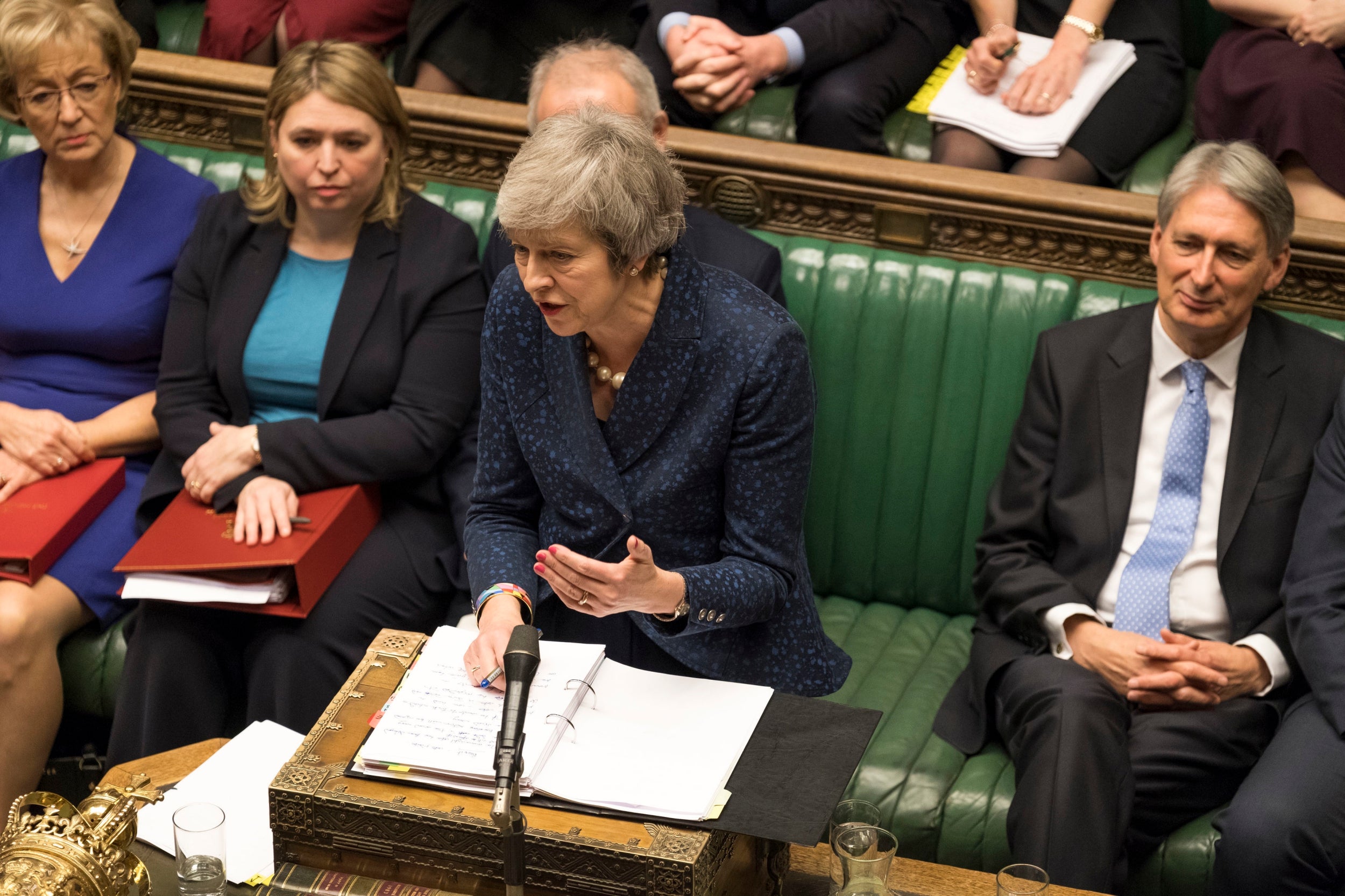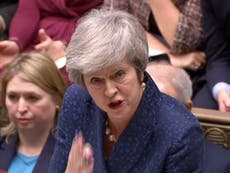Theresa May's performance at PMQs showed she has become inseparable from her Brexit deal – if one fails then so will the other
Her MPs cheered her arrival, but there will be no cameras in the quiet of the polling booth later


It may be that some scientific instrument exists that can calibrate the cheers that greeted Theresa May’s entrance into the Commons chamber. It was an exuberant noise, certainly, but was it 158 MPs' worth? That is the number that will need to be persuaded, come 6pm, if Theresa May is to survive these deadly hours.
But the instrument will also need to calibrate how many of the cheers were genuine. How many bangs on the back of the benches will translate to crosses in the right box, in the silent anonymity of the polling booths currently being set up in a room in the bowels of Westminster?
How many “hear hears” will, in a few hours time, have become “there theres”? Public support metamorphosed into public sympathy, each as disingenuous as the other.
To my eyes and ears, they looked like they meant it, but who knows? For Theresa May’s part she carried something of an easy swagger. The fight for survival is the most straightforward in nature. Theresa May is a politician that struggles to obfuscate, who regularly fails in her attempts to mislead. And those are not the skills that are needed at this moment.
None of the events of the morning appeared to have pushed Jeremy Corbyn into even the slightest rewrite of his planned questions. He principal outrage was in the scrapping of the meaningful vote of 48 hours previous. Much of what he said at the despatch box he had already said at the despatch box the day before, in an emergency debate on the matter.
Perhaps he knows it is not for him to question the authority of a leader over her own MPs. It was not so long ago he lost the support of 85 per cent of his own but carried on regardless.
As she warned of the “real risk” facing the country, that real risk being “a Labour government”, the Labour benches laughed. “All he wants to do is create chaos and division,” she said in her very first answer. The roar from the opposition could hardly have been more justified.
Her own MPs took it in turns to warn that the real risk facing the country is a Corbyn government. But it is a risk they have done more to make real than anyone he has. They have broken the prime minister who was most of the way through breaking him, and she has incinerated the unlikely majority he won.
For the most part her enemies remained quiet. Boris Johnson lurked in the seats by the door, not formally part of the chamber. Bill Cash, Jacob Rees-Mogg, Steve Baker did not attempt to be called to speak, and they did not speak.
Ken Clarke called the whole thing “self-indulgent”, and was indulged in this view by a volume of MPs whose numbers were again inconclusive.
Arguably, Neil O’Brien stole the show. He rose at the end with something of a peroration. “Head-bangers” in both parties were blamed. But as he spoke he read from a sheet that could quite easily have been typed up in the whips’ office.
If anything, the most seismic moment came afterwards, when the prime minister’s spokesperson issued some interesting words. That tonight’s vote is “not about who leads the party in to the next general election.” Back me now, in other words. I’ll deliver Brexit and be gone. But she has made so many promises before that have proved untrue.
And as things stand, a snap general election remains one of a vanishingly small number of feasible ways out of the Brexit impasse. If she says she won’t fight it, then presumably she can’t call it. That’s a decision she may, in the very near future, come to decide is no longer, to borrow the phrase of the moment, “in the national interest.”
It was, yet again, a valiant effort from the prime minister. Another gruelling half an hour at the despatch box, on top of the 20 hours she has already spent there, since returning from Brussels with the deal this place won’t tolerate.
But the two now have become one and the same. If one cannot be put before the commons, there will have to come a point at which she cannot be, either.


Join our commenting forum
Join thought-provoking conversations, follow other Independent readers and see their replies